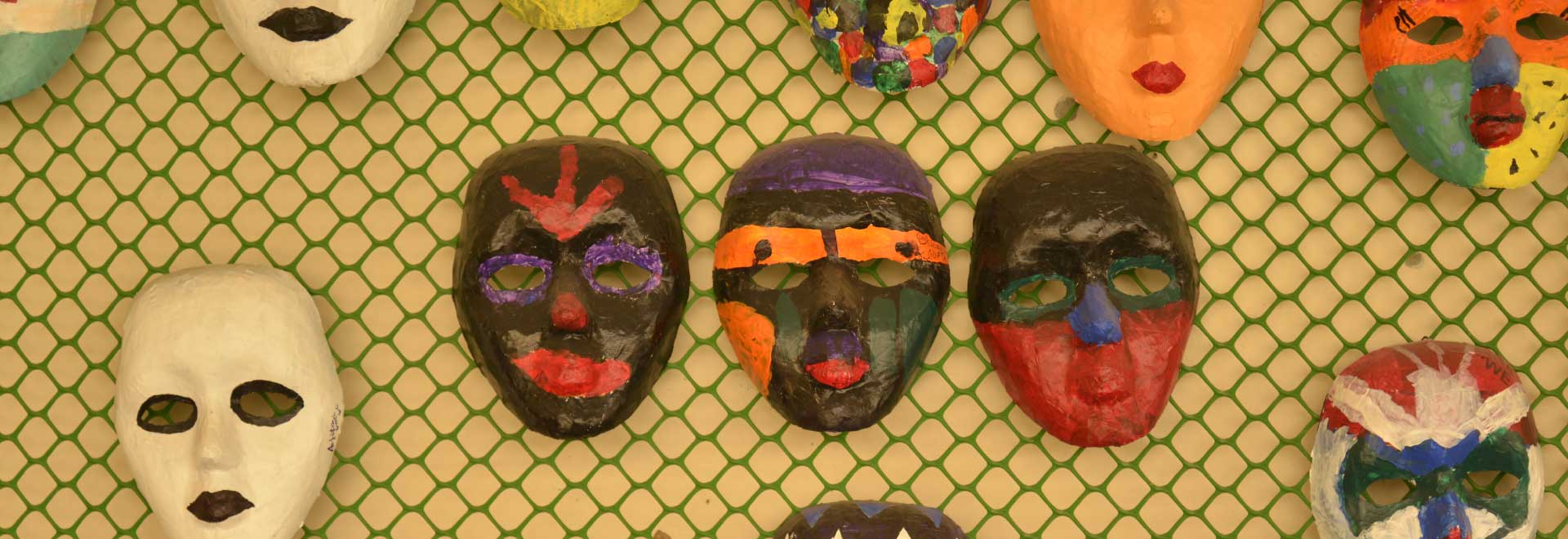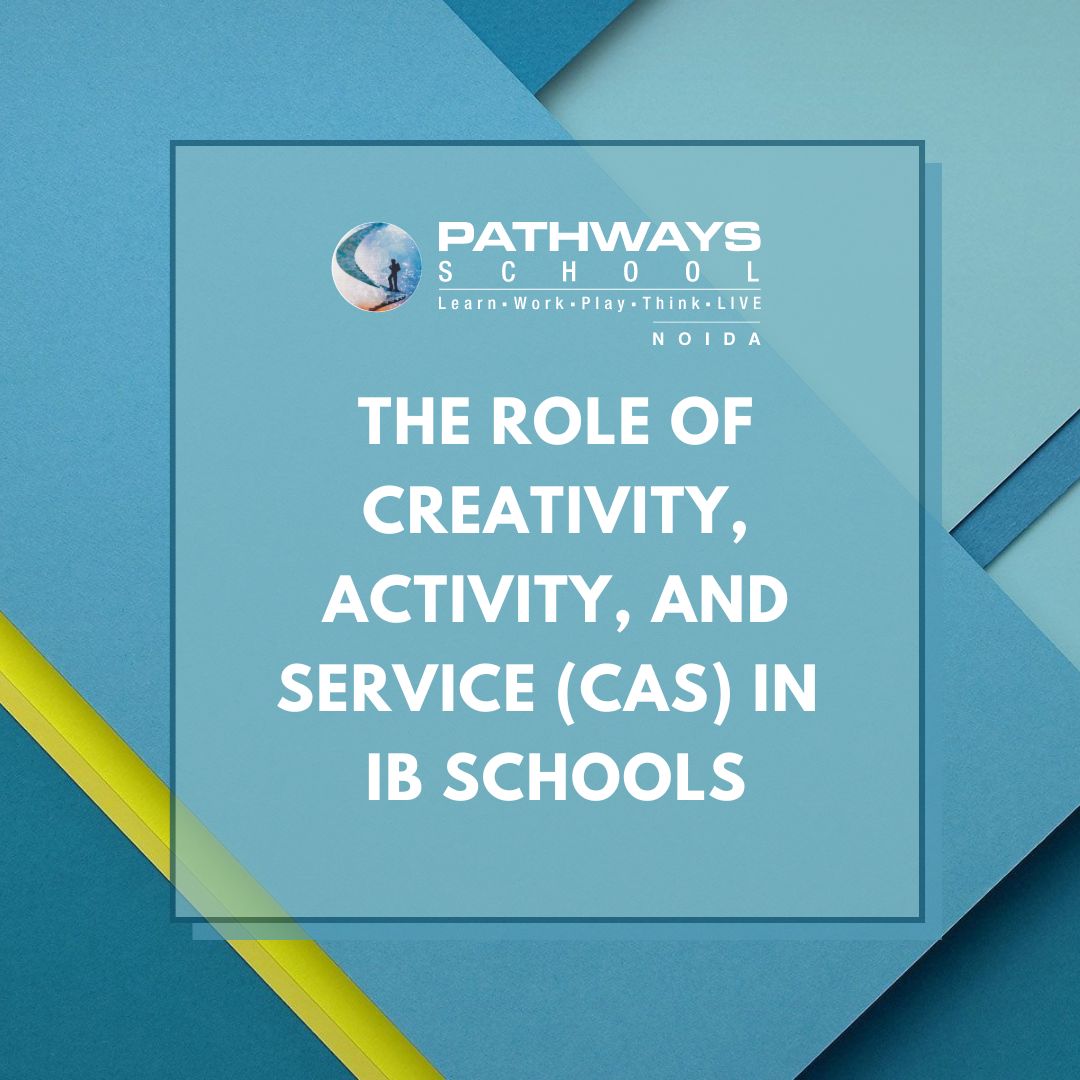Get In Touch
To talk to a counselor or schedule a personalized school tour, please complete the form below. We look forward to hearing from you.

Our Community
- Home
- Our Community
- Blog
Our Community
Pathways School Noida
Blog
Back-
The Role of Creativity, Activity, and Service (CAS) in IB SchoolsMay 10
The International Baccalaureate (IB) program is renowned for its rigorous academic courses. However, it also really focuses on the complete growth of students. At the heart of this idea is the Creativity, Activity and Service (CAS) part that has a goal to help students develop both personally and in their interactions with others.
In this blog, we will explore the significance of CAS in IB schools and how it contributes to the holistic development of students.
The Three Strands of CAS
1. Creativity:
This component of the program encourages students to explore and develop their artistic and creative talents. They can engage in things like playing music, making art, acting in plays, writing stories or poems, or any different type of artistic work. When students take part in creative activities, they learn how to think differently, share their thoughts and feelings, and gain new abilities. In CAS, creativity is not just about art; it also includes coming up with fresh ideas and solutions in different situations. For instance, a learner could invent a different method for conducting a science experiment or establish an original fundraising activity for a community service project.
2. Activity:
The activity component focuses on physical exertion and adopting healthy habits. Learners join in sports, programs for keeping fit, or different exercises that help with staying healthy. This line of teaching shows learners why it is key to keep a balanced way of living and the good things that come from exercising often. Exercise benefits not only physical health but also improves mental well-being by reducing stress and enhancing focus and concentration. In the program of activities, students are taught how to make plans for their targets, continue even when it gets difficult, and join forces with classmates in teamwork.
3. Service:
The service strand focuses on getting involved in the community and creating a good effect for other people. Students join in volunteering, projects within the community or efforts that deal with problems in society. Through service work, students develop empathy, leadership skills, and a deeper connection to societal needs. These projects might be small-scale things like helping younger kids with their studies or making a nearby park cleaner, or big actions that involve telling people about problems with the environment or giving help to groups of refugees around the world.
Benefits of CAS
1. Personal Growth:
CAS activities provide students with opportunities to push beyond their usual limits and challenge themselves. When they try new experiences and assume different responsibilities, they build self-belief, toughness, and a clearer insight into what they are good at and where they need improvement. Through the CAS program, students learn to embrace new challenges, adapt to different situations, and cultivate a mindset focused on continuous improvement. Such development of oneself is crucial for achievements in studies as well as in later personal and work-related adventures.
2. Skill Development:
Participating in CAS activities helps students develop and refine various skills, such as communication, collaboration, problem-solving, and time management. These skills are useful for schoolwork and jobs too. For instance, by participating in a service project, a student could gain good leadership and organization abilities. Similarly, being involved in creative work can improve their critical thinking and the way they communicate. CAS offers a space for students to grow these abilities and display them, which is very helpful when they apply to universities or look for jobs later on.
3. Global Citizenship:
By engaging in service projects and community involvement, students gain a better understanding of social issues and the importance of making positive contributions. CAS motivates learners to be alert global citizens who understand their surroundings and are dedicated to creating change. When students join in service tasks, they meet different viewpoints and start to feel what others are feeling. They grow a feeling for helping society and see how they can help with problems in their community and the world.
Integration with Academics
One of the main advantages of CAS is its integration with school studies. The activities in CAS frequently support and enhance what students learn during class. A student who studies environmental science might join a project about keeping nature safe and lasting. Another student, if they study a culture, could do something creative with that culture's art or songs. By doing this together, students can use what they know from school in real life situations. It makes their learning stronger and gives it more value.
Reflection and Personal Development
Reflection is very important in CAS. Students should often think about their experiences, what they have understood, the ways they have developed, and how to use what they now know and can do later on. This reflective process helps students develop self-awareness, critical thinking skills, and a growth mindset.
Bottom Line
Creativity, Activity, and Service (CAS) is a very important component of the International Baccalaureate program. It gives students chances to grow personally, improve their abilities, and get involved in community work. When students take part in CAS activities, they develop into more complete people who have success in studies but are also imaginative, energetic and committed to helping society. CAS is essential for getting students ready to do well in university and afterwards, giving them the necessary skills and way of thinking to create a good change in society.
-

Drop us your details for a quick response!








Copyright 2026 © Pathways School Noida. All rights reserved.
Managed By: Dezine N Digital








Get in Touch